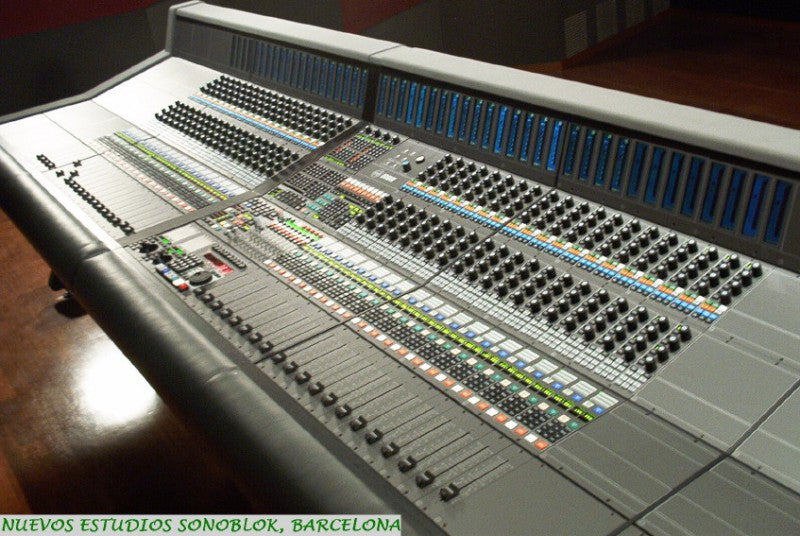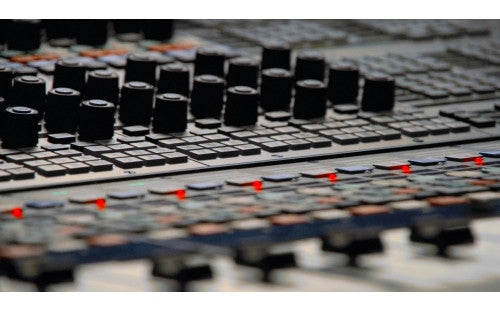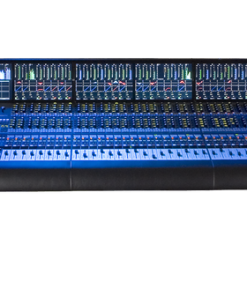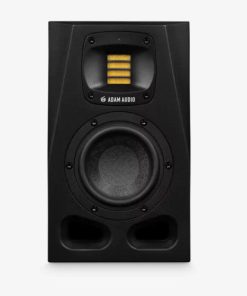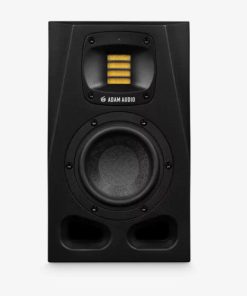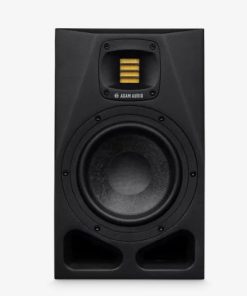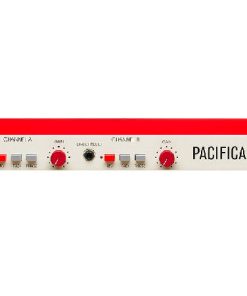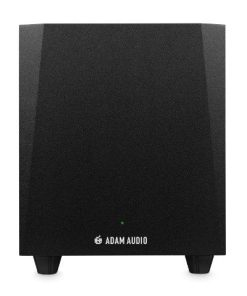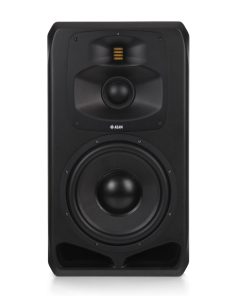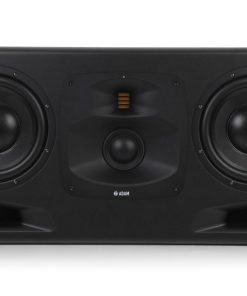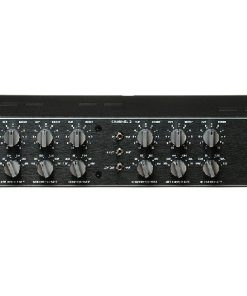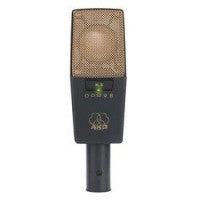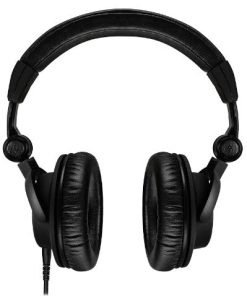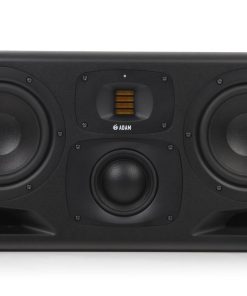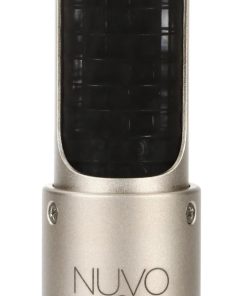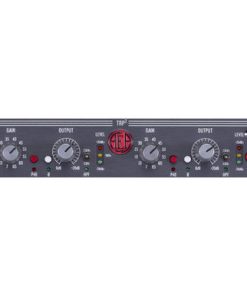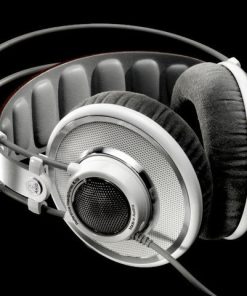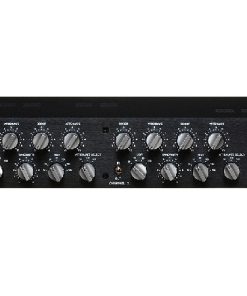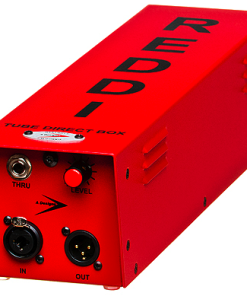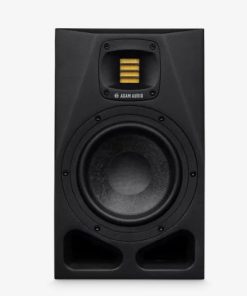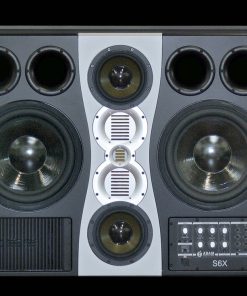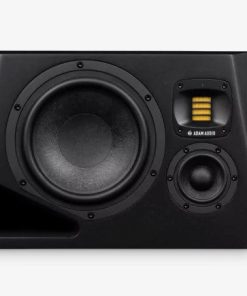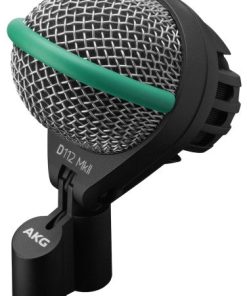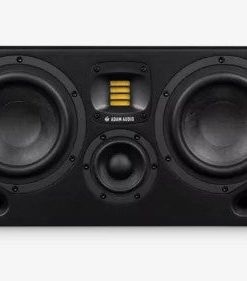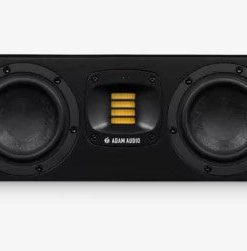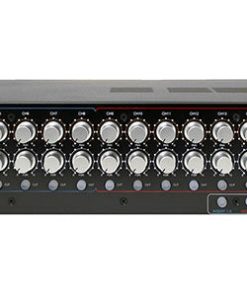AMS Neve DFC3D Gemini AMS Neve
$ 0,00
The AMS Neve DFC3D, the premier console for feature film mixing, is an upgraded version of the DFC Gemini, purpose-built for mixing in Dolby Atmos and 3D formats, and featuring updated DSP including multiband compression and de-essing, Subharmonic synthesizer and AMS RMX16 reverb with the original algorithms
If you’re spec’ing out a new console to compete with Warner Brothers, Goldcrest Films, Fox, Skywalker Sound, or Yash Raj Film, or tired of the dealing with workarounds multi-format film dubbing and post-production, the AMS Neve DFC3D is specifically designed for native mixing in Dolby Atmos, Auro3D, IMAX, and other 3D surround formats. An updated version of the industry-standard DFC Gemini, the DFC3D delivers legendary Neve sound across 1,000 audio paths at 24-bit/96kHz, in a single, high-resolution DFC signal-processing tower. The DFC3D also features updated plug-ins, including multiband compression and de-essing with sidechain access, and Subharmonic synthesizer for bass enhancement. Plus, the DFC3D heralds the return of the legendary AMS RMX16 digital reverb in plug-in form, featuring all the original algorithms. No other digital post-production console can offer the sheer power required to handle the demands of today’s content.
AMS Neve DFC3D Gemini-Just the Facts:
- Mix natively in Dolby Atmos and 3D formats
- Multi-format surround panning, with support for greater than 8.1 formats and 3D standards such as Dolby Atmos and Auro-3D
- The DFC’s unique ability to mix natively in formats such as 9.1 and 11.1 gives the re-recording mixer a distinct advantage in generating the Bed mix for Dolby Atmos delivery
- New DSP featuring Subharmonic synth and RMX16 reverb original algorithms
- DFC seamlessly generates objects and associated metadata in Dolby Atmos
- TFT Channel display
- TFT Master display
- Sophisticated monitor formatting with insertion of matrix processors
- Encore:3 automation system (compatible with 1,800 AMS Neve consoles)
- Off-line edit options offering enormous cost savings
- Most powerful DSP engine allows 1,000 audio paths at 24-bit/96kHz
- Neve EQ, dynamics, and bass enhancement plug-ins with linked dynamics
- Multi-band compressors and de-essers
- Faster control surface with touch-sensitive automation controls
- Expanded 12-stem mixing
- MIOS96 new I/O system with full remote control
- Intuitive channel strip
- Complete integrated machine control
- Multi-operator capability (up to three)
- WavTrak display providing level and dynamics metering, graphic EQ curve, and audio waveform information on a path-by-path basis
- Shared or discreet auxiliary and recorder busses
- Clear channel parameter and status feedback minimizing interrogation key presses
- The flexibility to fully configure the console is enhanced by the ability to create and modify multiple configurations
- Optional monitor facilities rack
AMS Neve DFC3D Gemini-Beneath the Surface
Native Dolby Atmos Mixing
Dolby Atmos is the latest generation of immersive 3D surround sound, initially geared towards commercial cinema but now adapted for the home. By targeting loudspeakers placed in locations around the listener (including ceiling speakers) a sound can be made to feel as though it is coming from anywhere in the room. It is an adaptable, scalable, object-based format that represents sound as independent audio elements which during playback are accurately positioned in three-dimensional space using the loudspeakers that are available.
AMS Neve worked in consultation with Dolby for several years before the release of Dolby Atmos giving both teams the opportunity to look collaboratively at how content in this object based format could be efficiently created making it viable for the studios to adopt.
The first film natively mixed in the Dolby Atmos format was Oblivion this feat was achieved using an AMS Neve DFC console with both Dolby and AMS Neve engineers present at the studios of Skywalker Sound to offer advice and support to the mixing crew. Until this point, a film would be mixed in a traditional format and later a modified version for Dolby Atmos where a limited number of sounds would be targeted to objects.
Native Auro-3D Mixing
The DFC3D mix engine can mix natively in three-dimensional sound-space with its 16-wide stems and pre-dubs. This allows for effortless creation of content for all Auro-3D formats including popular Auro-3D® 11.1 and Auro-3D 15.1 formats.
DFC control surface
DFC3D features new high-resolution, 3D-enabled metering developed to provide the best possible feedback at a glance, with a unique spatial panner optimized for three-dimensional workflow, providing an efficient mixing experience and a quick transition from conventional mixing techniques. The “camera” angle can be infinitely controlled, and the 3d visualization re-skinned. The metering options can be changed on the fly, and each operator can have a different meter setup so they can be tailored for the department they are working on. This also minimizes distracting and/or unnecessary information from non-relevant meters and objects.
Pop-up plug-in displays can appear when their associated controls are touched, waveform displays are now cached so no prior play pass is needed when reloading a setup, and stem and object routing, status, MADI status, and project settings can all be displayed on the master meters allowing for quick diagnostics.
To accommodate a large number of inputs within a realistic working footprint, the console surface is assignable with signal paths and functions such as EQ and Dynamics mapped to provide fast and intuitive operation. Any channel strip can control all the resources on a mono, stereo or up to sixteen channel inputs.
The control surfaces give instant access to every aspect of routing and monitoring on matter how complex the mix. The channel strip provides total control with the patented touch sensitive Logicator™ pots, giving instant visual reference to each knob setting.
DFC3D now has new integrated DSP plugin processes including a Sub-harmonic Synthesizer, Multi-Band Compressor, and the return of the well-known AMS RMX-16 Reverb. Increased DSP capacity allows for using the new processes in existing mix setups without compromising DSP availability. The plugins were designed to provide as much control as possible using a minimum of physical controls. They are quick to set up and fully automatable, keeping the feel and pace of mixing on a console.
Encore:2 automation
Encore:2 is the latest generation of the acclaimed Encore automation, delivering revolutionary new Reconform and Mix Import features, as well as Automation in Stop and Mix Audition. It provides that effortless control of Pro Tools, Nuendo, Pyramix, and Oasis systems, including plug-ins from the console surface via HUI.
Star Command paths
A recent development of Encore:2 is Star Command, which sets control paths for DAWs, including Pro Tools, Nuendo, Pyramix, and Oasis. You can choose how many Star Command paths you want and where you want them to appear on the surface. For example, you may want them to appear on the B layer, C layer, or on a separate bank. Once assigned to the surface, you will see buttons display SC for Star Command as you select them. This enables you to control DAWs such as Pro Tools. Moving an SC-enabled fader will cause the faders in the Pro Tools mix window (or whichever workstation you choose) to move in response and vice versa. Above the faders are cuts and solos, which share the same DAW control and response as the faders.
Automation display
Automation control can be selected between read, write, and isolate. In write mode, an indicator on the automation select button flashes red and turns solid red when automation is being recorded. Plug-ins can be selected and controlled from the console. You can select which plug-in parameters you wish to adjust from the console. The DFC PS-1 can control both native and 3rd-party plug-ins. The TFT display displays the HUI paths, and the metering you see is the DAW metering, e.g. from Pro Tools, as it’s sent via HUI protocol.
Displayed beneath the meters, you can see the Pro Tools plug-in setting’s numerical information. As you adjust the settings on the console, the TFT displays the numerical change. It also displays the Pro Tools path names. The DFC PS-1 also lets you bank through the DAW channels, 16 at a time, up to 64 channels. Similarly, audio input channels from the DAW can be brought into the DFC and assigned to a separate layer, enabling you to switch between normal audio channels and DAW paths via Star Command.
Encore:2 Automation Reconform is a highly significant development. It is becoming increasingly common for pictures to be re-cut right up to and beyond the last possible moment. In the past, this became frustrating as mixes had to be rerun from change points. Now change lists can be taken into Encore Plus and the mix automation cut and spliced automatically to reflect picture changes. This significantly reduces the workload on the Mixer as pictures are re-cut as well as allowing greater freedom to the Director who can now continue to make creative changes right up to the dub without disrupting the mixing process.
Automation can now be written whilst the timeline is stationary, automation in stop, with user-defined “automation to” settings. Dynamic automation can also be written at less than play speeds enabling exact settings and movements to be made with pinpoint accuracy. Mix Audition, based on the enhanced system speed, enables near-instant play of numerous versions of a mix. An essential tool for all applications.
AMS Neve DFC full feature list:
USP “SuperSlice” engine:
- The world’s most powerful digital audio mixing engine
- Built on six previous generations of AMS Neve’s digital audio expertise
- Huge power designed to handle the biggest and most complex mixes of today’s and tomorrow’s blockbusters
- Configuration flexibility ensures future longevity
- Up to 2,000 signal paths at 48kHz in a single rack
- USP engine can mix at up to 192kHz, 1,000 paths at 96kHz
- Neve EQ, dynamics plug-ins with linked dynamics and sidechain EQ
- Expanded 12-stem mixing
- Everything time-aligned; additional programmable delay per channel
- Up to 36 mono or stereo auxiliary sends
- Up to 136 pre-dub inputs
- Up to 96 record buses (tracks)
- 40-bit floating-point algorithms, much wider dynamic range than 64-bit fixed, or 32-bit floating point
- Legendary Neve sound
- Processing in any order; processing can be inserted anywhere including mix buses
3D and surround formats
- AMS Neve SuperStem™ mixing for best sound in any 3D format
- Native mixing in Dolby Atmos
- The DFC can mix the Dolby Atmos bed in 9.1 or 11.1
- Object designation can dynamically be assigned
- 3-dimension panning from joysticks and channel strips
- Monitor control of all elements of the Atmos workflow
- Complete mix solution for all Auro-3D formats including the popular 9.1 and 11.1 Auro-3D formats
- Ideal way to control Dolby Atmos, Barco Auro-3D, and other emerging formats
- No plug-in required for 3D/surround formats
- Get outside the box and mix the perfect 3D cinema experience
Encore:2 Automation Engine:
- Industry-standard AMS Neve cross-platform automation
- Total Dynamic Automation™
- Offline editing options offer great cost savings
- Encore 2 control engine 40-times faster than Encore 1
- Control of Pro Tools, Nuendo, Pyramix, Oasis, Reaper, and plug-ins via Star Command function
- Reconform delivers efficient workflow as picture recuts go up to the last possible moment
- Change lists imported directly into Encore and mix automation is re-conformed to match the new cut
- Integrates into existing network infrastructure
Monitoring
- 12 stems and 6 multi-track machines
- Each stem can have up to 16 members
- Industry-standard PEC/Direct switching
- Optional Neve Monitor Facilities rack
Control Surface
- One-, two-, and 3-operator configurations from a single mainframe
- “Desk Designer” software enables custom configurations
- Six banks of four layers, effectively 24 layers of surface path assignments
- Industry reference standard channel layout
- Channel strip count up to 128
- Smallest control surface can control the largest mix
- Intuitive, touch-sensitive Logicator™ rotary controls with internal LED status and settings indicators
- Numeric display per control plus TFT graphics
- All variable controls are touch sensitive
- Autoglide matches back to the play pass automatically when released
- To facility scene change, Collect Touch allows selection of a range of controls; automation can be previewed and written in context
- Widescreen TFT overbridge with very wide viewing angle
- ViewMix™ software displays all aspects of your mix, including graphic EQ, dynamics, panning, routing porting, path names, process inputs/outputs on a path-by-path basis
- TFT master display-up to 16 master meters (each up to 8 paths wide), bus matrix, track arm information, and status
- WaveTrak™ display of pre- and post-audio track data channel
- Any channel strip can control mono, stereo, or multi-channel audio
- Modular surface extremely configurable
- Optional 8-band hardware graphic equalizer with moving faders
- Superb ease of use on the most complex mixing challenges
I/O
- Modular I/O System (MIOS) and MIOS Lite deliver definitive Neve-quality audio at 24-bit/96kHz or 48kHz/44.1kHz resolution
- MIOS modules include 8-channel mic/line, 16-channel DAC; 16-channel AES SRC to 192kHZ
- Choice of dual-fiber or dual-co-ax MADI connections
- Four built-in DAC converters in addition to any DAC modules that may be fitted for talkback, foldback, or studio speakers
- Front panel headphone socket that can be switched to monitor any of the rack inputs
- Bi-directional, intelligent integration to confirm which channel on the console each input is connected
- AES960 rack provides the best asynchronous I/O-super low distortion and noise
- QuadMADI 64 multichannel I/O subsystem (Neve defined the MADI specification with BBC and Studer)
- Built-in router
- Fully integrated multi-machine control
The AMS Neve DFC is the gold standard for world-class motion picture facilities including Warner Brothers, Goldcrest Films, Fox, Skywalker Sound, and Yash Raj Film. In fact, over 70% of international blockbusters are mixed on the DFC. For more information, call or chat online with your PAD Studio Integrator.
Specifications
Mic Input Module
Mic Inputs (60dB gain with 150-ohm source impedance
- Frequency response: +0.1/-0.4dB @ 20Hz, +0.1/-0.2dB @20kHz, +0.1/-0.5dB @ 40kHz (96k sampling only)
- Input impedance: >2k ohm
- EIN: >-126dB
- THD+Noise: < 0.008% 20Hz to 1kHz, rising to < 0.03% @ 15kHz
- Crosstalk: < -90dB 20Hz to 1kHz, rising to < -80dB @ 20kHz (measurement is three hostile channels to one quiet)
- CMRR: > 70dB 20Hz to 1kHz, rising to > 60dB @ 20kHz
- Maximum Input: Set with headroom jumpers ( 26dB headroom only maintained for gains of 6dB to 75dB)
Line inputs (0dB gain with 50-ohm source impedance)
- Frequency response: +0.1/-0.2dB 20Hz to 20kHz, +0.1/-0.5dB @ 40kHz
- Input Impedance: >20kOhm
- EIN: >-108dB
- THD+Noise: < 0.003% 20Hz to 1kHz, rising to 0.03% @ 15kHz
- Crosstalk: < -90dB 20Hz to 20kHz (measurement is three hostile channels to one quiet)
- CMRR: > 70dB 20Hz to 20kHz
- Maximum input: 26dBu (set with headroom jumpers)
Line Input Module
Line Inputs (0dB gain with 50 Ohm source impedance)
- Frequency response: +0.1/-0.2dB 20Hz to 20kHz, +0.1/-0.3dB @ 40kHz
- Input impedance: >20k ohm
- Dynamic range: >110dB
- THD + Noise: <0.003 20Hz to 1kHz, rising to 0.006% @ 15kHz
- Crosstalk: < -84dB 20Hz to 20kHz (measurement is 15 hostile channels, one quiet)
- CMRR: > 70dB 20Hz to 20kHz
- Maximum input: 26dBu (set with headroom jumpers)
Line Output Module
Line Outputs (0dB gain into 100kOhm load impedance)
- Frequency response: +0.1/-0.3dB 20Hz to 20kHz, +0.1/-0.8dB @ 40kHz
- Output impedance: 50 ohm
- Dynamic range: >110dB
- THD + Noise: < 0.005% 20Hz to 1kHz, rising to 0.008% @ 15kHz
- Crosstalk: < -90dB 20Hz to 20kHz (measurement is 15 hostile channels, one quiet)
- Maximum output: 26dBu (set with headroom jumpers)
| Title | Default |
|---|
Prompt Delivery and Professional Packaging
Our long-standing partnership with UPS FedEx DHL and other global carriers lets us offer a range of shipping services. Our warehouse staff is extremely skilled and will package your items according to our precise and exact specifications. Your goods will undergo an extensive inspection and be safely packaged prior to being sent out. Each day, we ship to thousands of customers in many countries. The fact that we are committed to becoming the biggest online retailer in the World is clear. These warehouses are in Europe in the same way as they are in USA.
Note: Orders that include more than one item are assigned a processing period depending on the item.
Before shipping, we will inspect thoroughly the items you have ordered. Most orders are shipped within 48 hours. Expected delivery time is between 3-7 days.
Returns
Stock is dynamic. It's not entirely managed by us since we are involved with multiple entities, including the factory and the storage. The actual stock can change at any moment. It is possible that your order may be out of stock once the order has been placed.
Our policy lasts for 30 days. We cannot exchange or refund your order if it has been 30 days from the date of purchase.
For your item to be returned it must be in its original packaging, unopened and in the condition you received it. The item must be in its original packaging.
Related products
Monitor
Microphones
Microphones
Headphones
Monitor
Recording Equipments
Subwoofer
Monitor Systems
Monitor Systems
Microphones
Accessories
Equalizers
Recording Equipments
Headphones
Monitor Systems
Microphones
Mic Preamp
Accessories
Equalizers
Accessories
500 Series
Monitor Systems
Recording Equipments
Monitor
Recording Equipments
Monitor Systems
Subwoofer
500 Series


